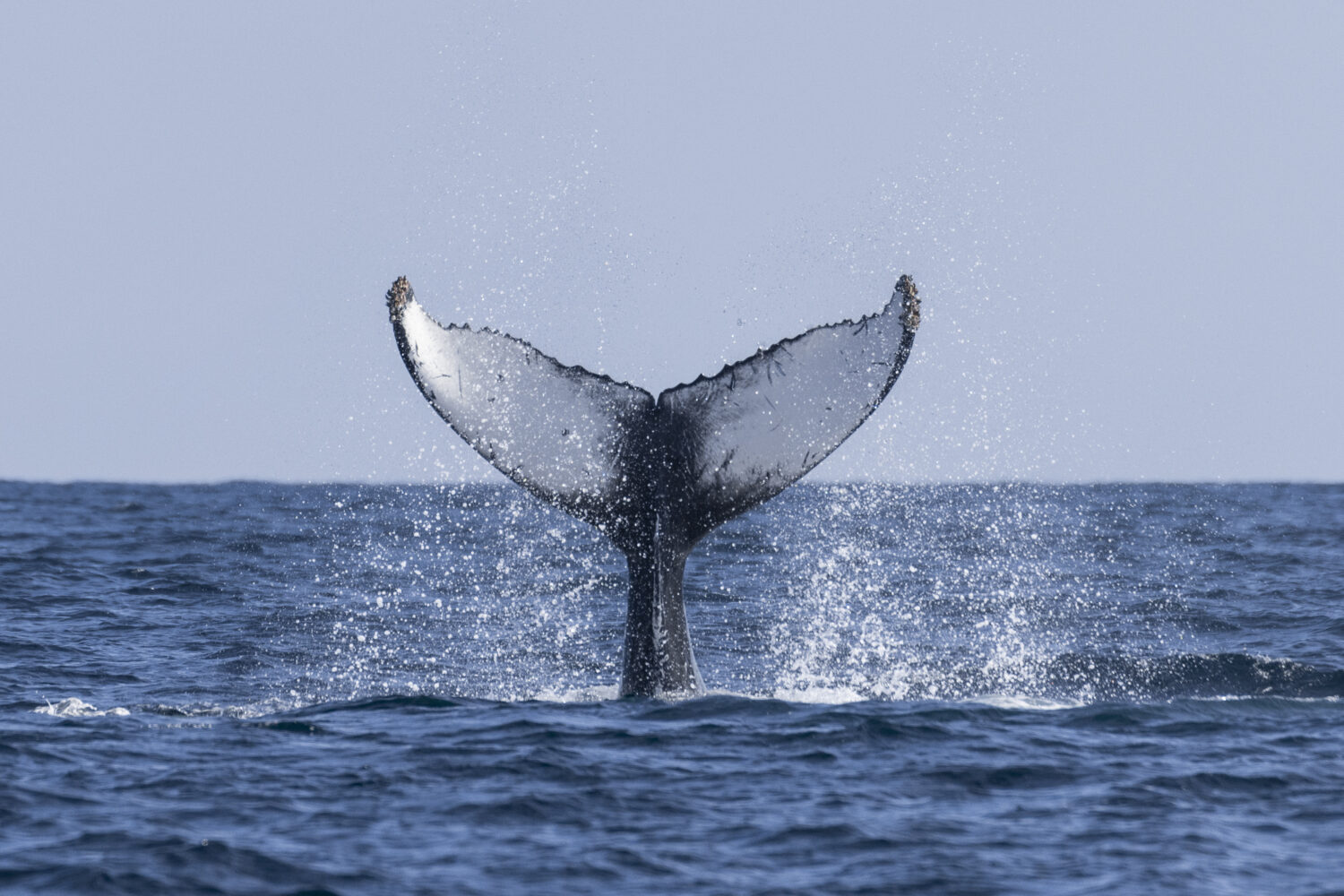The Santa Barbara Channel is one of the most biologically rich and ecologically significant marine environments in the world. Designated as a Whale Heritage Area in 2023, this vibrant stretch of ocean is home to diverse marine wildlife, including many species of whales, dolphins, porpoises, seals, sea lions, and seabirds. While books, documentaries, and classroom lessons provide valuable knowledge about marine ecosystems, nothing compares to the transformative experience of witnessing these magnificent creatures in their natural habitat. This is why getting students out on whale-watching boats in the Santa Barbara Channel is not just a field trip—it’s a vital investment in the future of ocean conservation.
The Santa Barbara Channel Whale Heritage Area team just wrapped up their first season of pilot programs, successfully sponsoring whale watching adventures for over 200 students aboard the Condor Express and Island Packers. For many of them, it was their very first time being on a boat. They all saw mega pods of common dolphins, and 2 of the 3 trips had whales too.
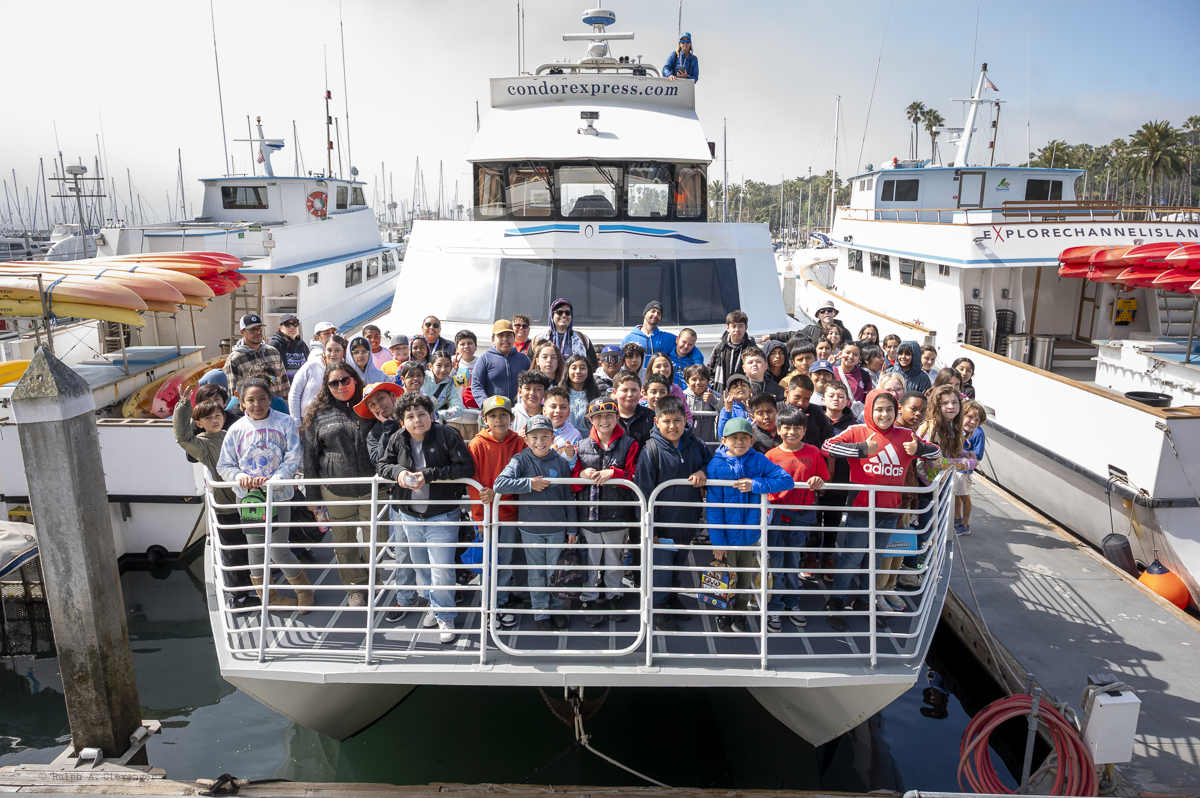
Creating Emotional Connections with the Ocean
One of the most powerful ways to foster a sense of stewardship in young minds is through direct experience. Seeing a humpback whale breach or hearing the exhale of a gray whale or being in the middle of a mega pod of common dolphins, creates an emotional connection that cannot be replicated in a classroom. These moments of awe and wonder ignite curiosity and deepen students’ appreciation for the ocean’s beauty and complexity. When children and young adults witness marine life firsthand, they are more likely to develop a personal responsibility for protecting it.
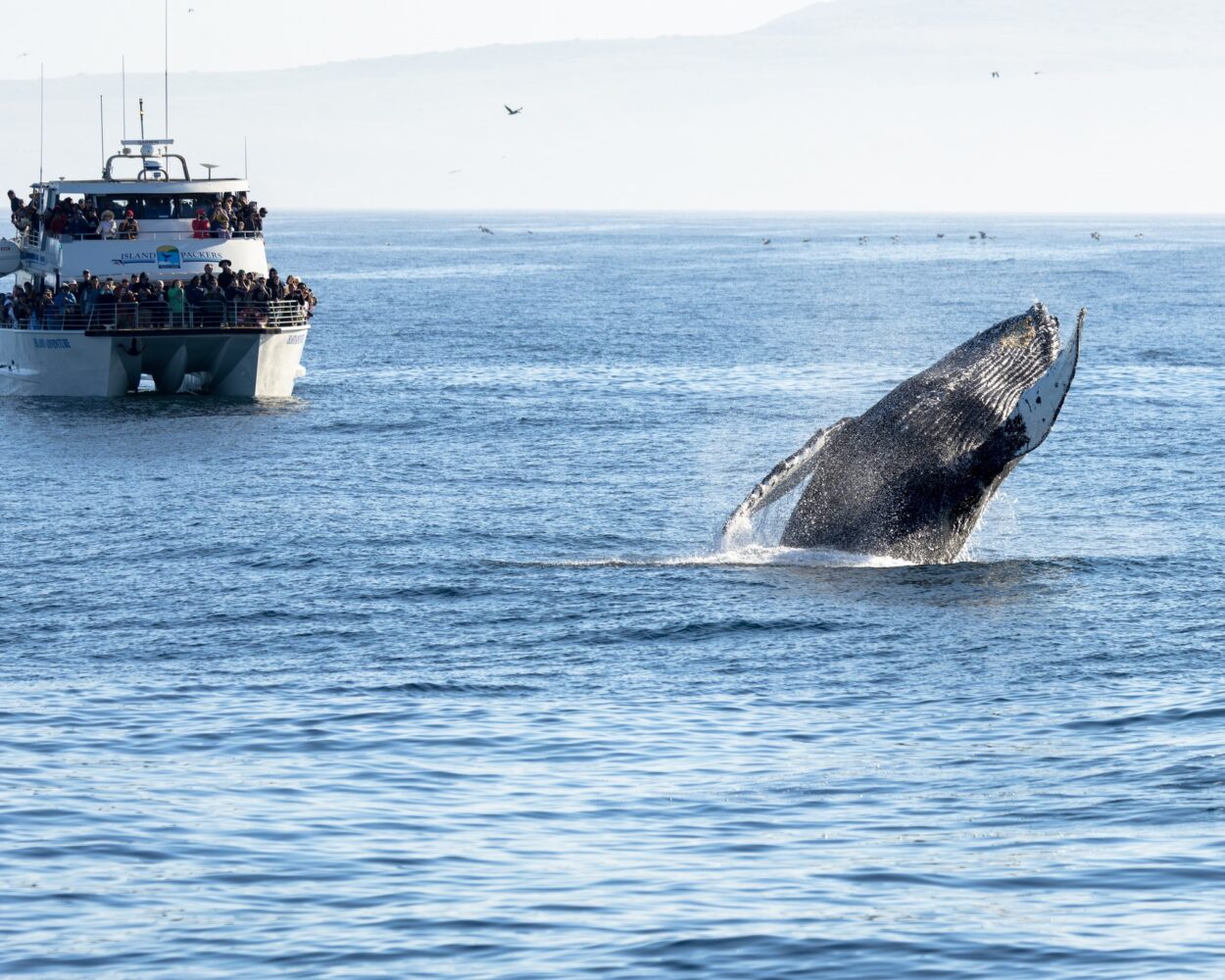
Bridging Education with Real-World Conservation
A whale-watching trip is more than an exciting day on the water; it is an immersive learning opportunity. Onboard naturalists and marine biologists provide engaging, science-based insights into whale behavior, migration patterns, and the impact of human activities on marine ecosystems. Students learn about ocean conservation challenges such as climate change, plastic pollution, and habitat degradation—issues that directly affect the species they are observing. By connecting academic knowledge with real-world encounters, students gain a deeper understanding of why conservation efforts matter.
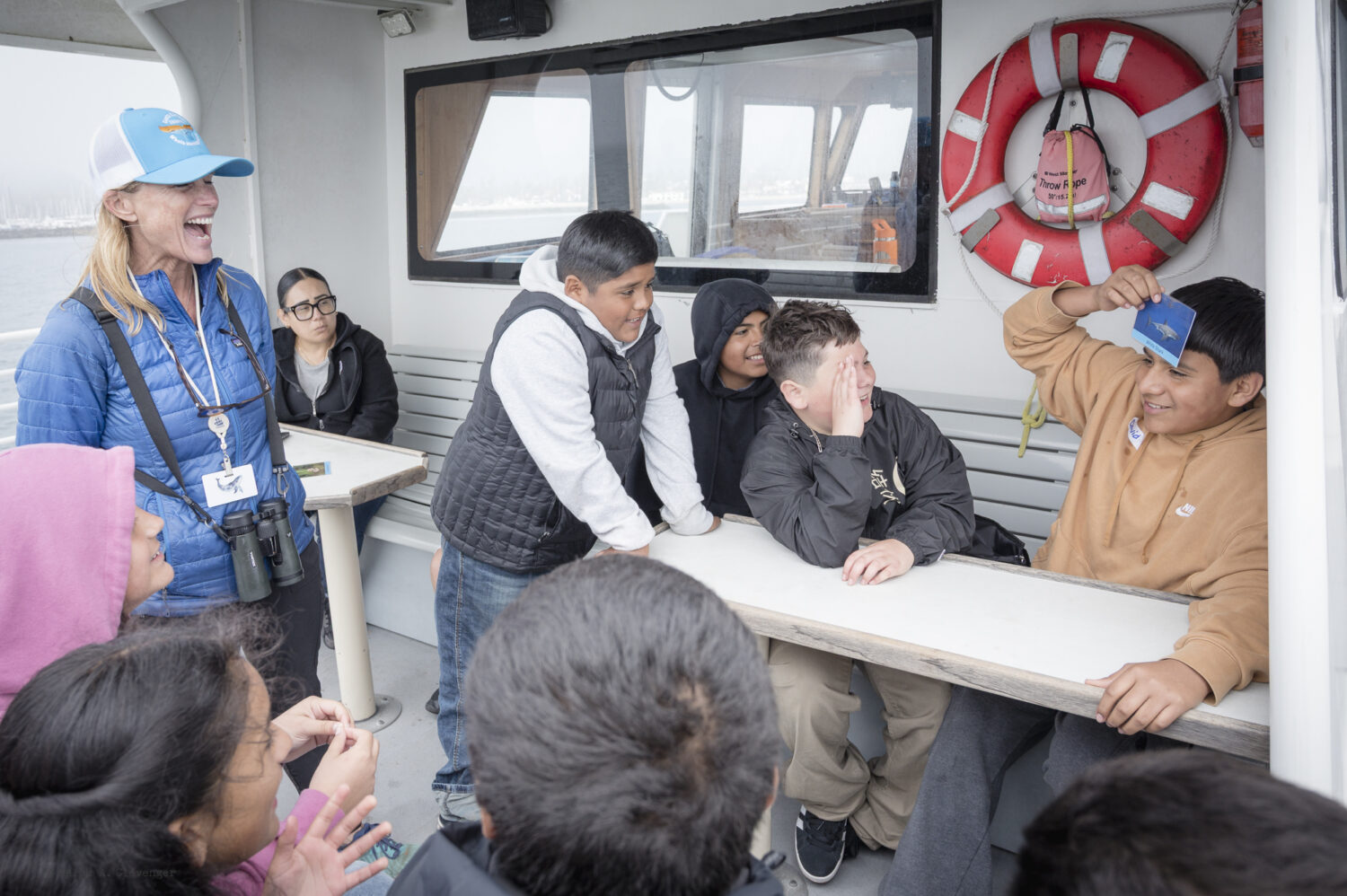
Inspiring Future Ocean Advocates
Many of today’s leading marine biologists, conservationists, and naturalists trace their passion for the ocean back to a single formative experience in their youth. By exposing students to the wonders of marine life, we are not just educating them—we are planting seeds for future careers in ocean science, advocacy, and environmental protection. Even those who do not pursue marine-related professions will carry their experiences with them, influencing sustainable choices and spreading awareness in their communities.
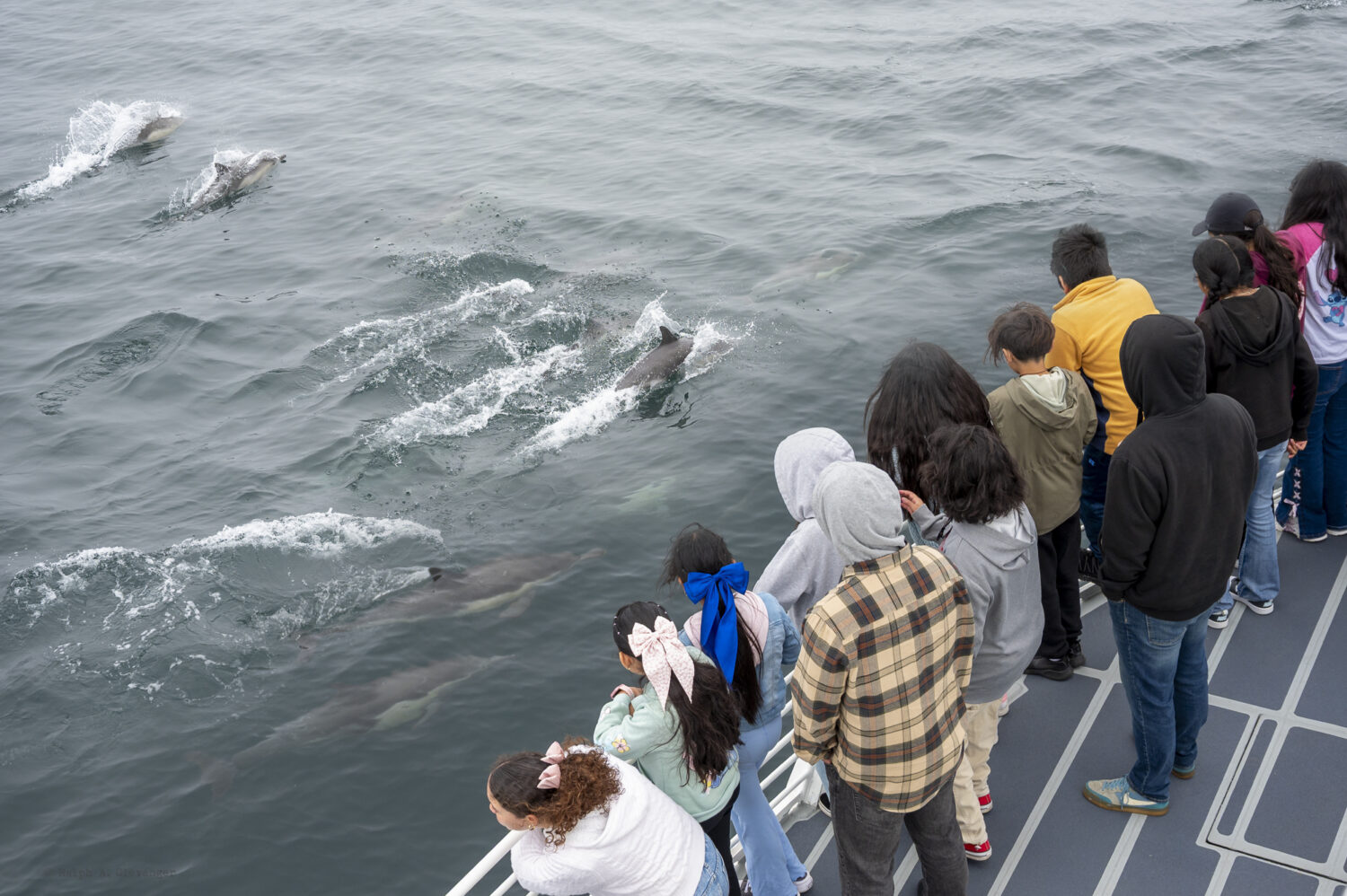
A Call to Action: Expanding Access to Whale-Watching Experiences
Unfortunately, not all students have access to these life-changing experiences. Cost and logistical challenges can make it difficult for schools to organize whale-watching trips, especially for underprivileged communities. One of the goals at the Santa Barbara Channel Whale Heritage Area is to expand funding, scholarships, and partnerships between schools, nonprofits, and eco-tourism operators that can help bridge this gap. By making marine education more accessible, we can ensure that a diverse range of students develop a love for the ocean and a commitment to its protection.
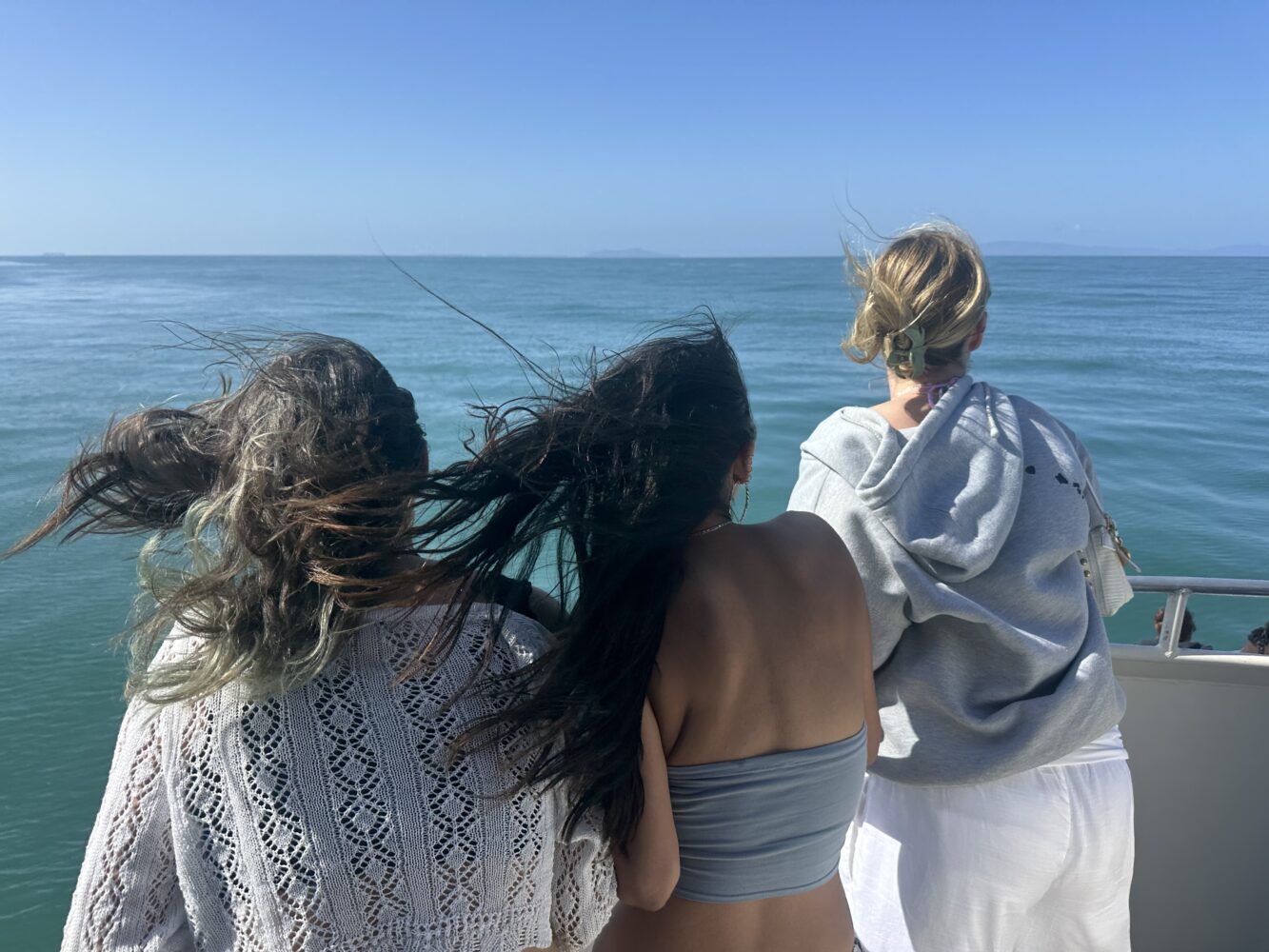
The future of our oceans depends on the next generation. By bringing students out onto the whale-watching boats in the Santa Barbara Channel Whale Heritage Area, we are giving them more than just a memorable adventure—we are inspiring lifelong ocean stewards. These experiences foster curiosity, deepen understanding, and cultivate a personal connection to marine life, ultimately leading to stronger conservation efforts. If we want to protect our oceans for future generations, we must start by introducing young minds to the wonders of the sea today.
